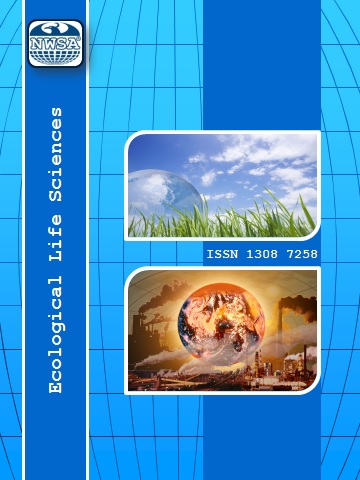References
1. Godfray, H.C.J., Beddington, J.R., Crute, I.R., Haddad, L., Lawrence, D., Muir, J.F., Pretty, J., Robinson, S., Thomas, S. M., and Toulmin, C., (2010). Food security: the challenge of feeding 9 billion people. Science, 327(5967):812-818. https://doi.org/10.1126/science.1185383.
2. Willett, W., Rockström, J., Loken, B., Springmann, M., Lang, T., Vermeulen, S., Garnett, T., Tilman, D., DeClerck, F., Wood, A., Jonell, M., Clark, M., Gordon, L. J., Fanzo, J., Hawkes, C., Zurayk, R., Rivera, J.A., De Vries, W., Sibanda, L.M., … Murray, C.J.L., (2019). Food in the Anthropocene: The EAT–Lancet Commission on healthy diets from sustainable food systems. The Lancet Commissions, 393(10170):447–492. https://doi.org/10.1016/S0140-6736(18)31788-4.
3. World Economic Forum, (2024). Investigating Global Aquatic Food Loss and Waste, white Paper, April 2024. https://www3.weforum.org/docs/WEF_Investigating_Global_Aquatic_Food_Loss_and_Waste_2024.pdf (Erişim: 01.07.2025).
4. FAO, (2011). Global food losses and food waste – Extent, causes and prevention. Rome: Food and Agriculture Organization of the United Nations. https://www.fao.org/documents/card/en/c/mb060e.
5. UNEP, (2021). Food Waste Index Report 2021. Nairobi: United Nations Environment Programme. https://www.unep.org/resources/report/unep-food-waste-index-report-2021.
6. FAO, (2013). Food wastage footprint: Impacts on natural resources. Summary report. Rome: Food and Agriculture Organization of the United Nations. https://www.fao.org/documents/card/en/c/i3347e.
7. Poore, J. and Nemecek, T., (2018). Reducing food’s environmental impacts through producers and consumers. Science, 360(6392):987-992. https://doi.org/10.1126/science.aaq0216.
8. Parfitt, J., Barthel, M., and Macnaughton, S., (2010). Food waste within food supply chains: quantification and potential for change to 2050. Philosophical Transactions of the Royal Society B: Biological Sciences, 365(1554):3065-3081.https://doi.org/10.1098/rstb.2010.0126.
9. Corrado, S., Caldeira, C., Eriksson, M., Hanssen, O.J., Hauser, H.E., van Holsteijn, F., Liu, G., Östergren, K., Parry, A., Secondi, L., Stenmarck, Å., and Sala, S., (2019). Food waste accounting methodologies: Challenges, opportunities, and further advancements. Global Food Security, 20:93-100. https://doi.org/10.1016/j.gfs.2019.01.002.
10. FAO, (2014). Food loss analysis: Causes and solutions. Case studies in the small-scale agriculture and fisheries subsectors. https://www.fao.org/fileadmin/user_upload/food-loss-reduction/Methodology_-_Food_Loss_Analysis_-_Causes_and_Solutions_Aug2014.pdf (Erişim: 01/07/2025).
11. FAO, (2016). Food Loss Analysis: Causes and Solutions Case studies in the Small-scale Agriculture and Fisheries Subsectors https://openknowledge.fao.org/server/api/core/bitstreams/9d89d67b-7385-4360-8231-dc4607477157/content.
12. UN, (2015). Transforming our world: the 2030 Agenda for Sustainable Development (A/RES/70/1). https://sdgs.un.org/2030agenda.
13. Thyberg, K.L. and Tonjes, D.J., (2016). Drivers of food waste and their implications for sustainable policy development. Resources, Conservation and Recycling, 106:110-123. https://doi.org/10.1016/j.resconrec.2015.11.016.
14. Gunders, D., (2012). Wasted: How America is losing up to 40 percent of its food from farm to fork to landfill. (NRDC Issue Paper). Natural Resources Defense Council. https://www.nrdc.org/sites/default/files/wasted-food-IP.pdf.
15. Stuart, T., (2009). Waste: Uncovering the global food scandal. Penguin Books. ISBN 978-0393068368, 480p.
16. Ukav, İ., (2024). Türkiye’de lisanslı depoculuk sisteminin değerlendirilmesi. ISARC International Science and Art Research Center. 4. Uluslararası Trakya Bilimsel Araştırmalar ve Inovasyon Kongresi, 20-21 Temmuz, 720-732.
17. Garrone, P., Melacini, M., and Perego, A., (2014). Opening the black box of food waste reduction. Food Policy, 46:129-139. https://doi.org/10.1016/j.foodpol.2014.03.014.
18. Galanakis, C.M., (2012). Recovery of high added-value components from food wastes: Conventional, emerging technologies and commercialized applications. Trends in Food Science & Technology, 26(2):68-87. https://doi.org/10.1016/j.tifs.2012.03.003.
19. Stancu, V., Haugaard, P., and Lähteenmäki, L., (2016). Determinants of consumer food waste behaviour: Two routes to food waste. Appetite, 96:7-17. https://doi.org/10.1016/j.appet.2015.08.025
 +90(535) 849 84 68
+90(535) 849 84 68 nwsa.akademi@hotmail.com
nwsa.akademi@hotmail.com Fırat Akademi Samsun-Türkiye
Fırat Akademi Samsun-Türkiye
